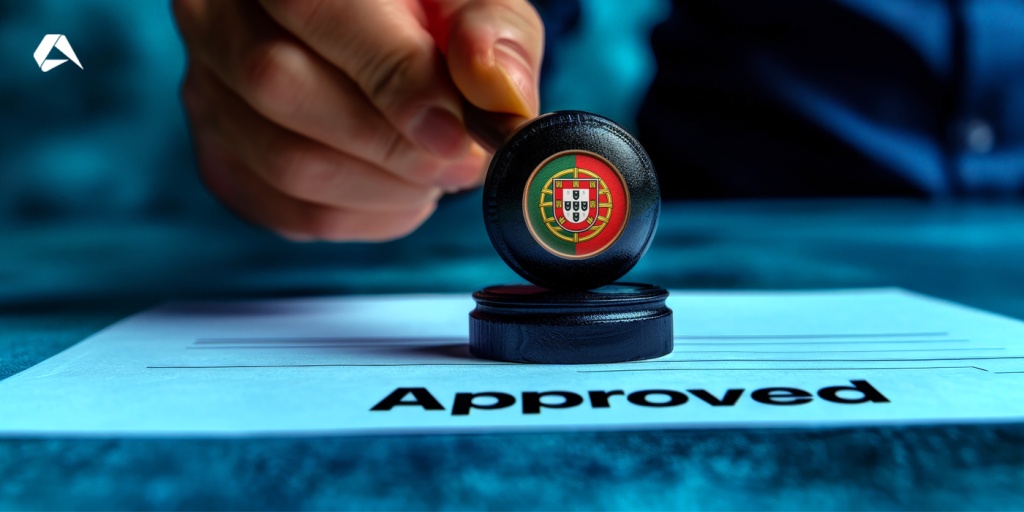Overview Gambling Laws in Portugal: Operators Guide to Regulation and Legality in 2024
Portugal's gambling industry in 2024 offers significant opportunities for iGaming operators, driven by its strategic European location, alignment with EU standards, and an expanding player base with a strong attraction for online betting. The market is thriving, contributing notably to the national economy, and operates under tight regulation that balances economic interests with consumer protection.
A key advantage for players is that winnings from all licensed online gambling activities are generally exempt from personal income tax.
For operators, while market entry costs are higher than average in Europe, reflecting a desire for well-capitalised entrants, the opportunities are substantial, with annual revenues exceeding €300 million and consistent growth. The Serviço de Regulação e Inspeção de Jogos (SRIJ) is the central authority, responsible for licensing and ensuring compliance with stringent regulations covering technical standards, Anti-Money Laundering (AML) obligations, responsible gambling measures, and advertising guidelines. Unlicensed operations face severe fines and potential criminal charges.
Operators must navigate a rigorous licensing process, including significant product approval and licence issuance fees, and a substantial €500,000 security deposit. Taxation varies by activity, with sports betting taxed on turnover (8%) and online casino/bingo on Gross Gaming Revenue (25%). This detailed guide provides essential insights into navigating Portugal's regulated and lucrative iGaming market.
Portugal’s strategic location within Europe and its alignment with EU standards make it an attractive option for operators seeking cross-border opportunities. Better yet, its expanding player base of bettors with a growing attraction for online betting offers significant growth potential. This detailed guide explores the legal framework and feasibility for operators considering market entry in 2024:
The Gambling History of Portugal
Portugal has a rich and complex gambling history that intertwines with its cultural and economic situation. The history of gambling began in earnest when Portugal, a leading maritime power at the time, was at the height of its colonial expansion in the 16th century. Seafarers and traders would learn and share various games of chance from around the globe, which became rooted in Portuguese culture.
In the early days, gambling in Portugal was traditionally a private affair, enjoyed among family and friends, often within local taverns. Card and dice games were particularly popular, and the public attitude towards gambling was predominantly favourable. The absence of regulatory oversight, however, meant that gambling activities were largely informal and unregulated, contributing to their widespread acceptance and practice.
When the popularity of gambling grew, so did the need for oversight. By the late 18th and early 19th centuries, Portugal began to see the rise of more organised forms of gambling, including lotteries, raffles and tombolas, typically held in local fairs and social events. Horse racing began to emerge as a popular activity, and bets on animal contests such as cockfighting were common in rural and urban areas. These events attracted large crowds and became a significant aspect of social life. Informal private betting was also on the rise and a regular part of daily interactions.
The evolving gambling scene necessitated the introduction of greater control, especially as the government recognised the potential for revenue generation. The turning point came in the early 20th century when the Estoril Casino was established in 1916. This event marked the beginning of state-regulated gambling in Portugal. Legislative milestones began to shape the gambling landscape thereafter, most notably the introduction of the Gambling Act in 1927. This Act provided a legal framework for the operation of casinos and other gambling activities, firmly placing them under governmental oversight.
Subsequent regulations continued to evolve. In the mid-20th century, for instance, there was a significant expansion of gambling venues and activities, including the legalisation of betting on sports and the establishment of the National Lottery in 1955.
Timeline of the key milestones in Portugal’s history of gambling
1783: The Royal Lottery was established.
1927: First land-based venue ‘Casino Estoril’ opens.
2003: Drafting of laws for the emerging online gambling sector.
2010: Government authorisation of sports betting.
2015: Law No. 66/2015 regulating online gambling enacted. Regulatory authority SRIJ established to introduce licensing.
2021: The SRIJ strengthens AML measures.
2022: Launch of a national self-exclusion system.
2023: Review of gambling tax structure and licensing fees initiated.
2024: Regulatory updates to include tighter controls in advertising.
The Current Landscape in 2024
In 2024, the gambling industry in Portugal is thriving and contributes significantly to the national economy. It is tightly monitored and regulated, much aligned with current EU standards. That’s to say, Portugal’s approach to gambling regulation reflects a balance between economic interests and consumer protection.
All online gambling activities in the country are legal, subject to iGaming operators acquiring and maintaining a legal licence. Furthermore, all residents and non-residents can gamble online provided they are over 18 and wagering at a licensed venue.
Better still, winnings from online gambling are generally exempt from personal income tax for individual bettors and players. This exemption applies to winnings from all forms of licensed online gambling, including casinos, sports betting, poker, and lotteries, regardless of the amount won.
The legalisation and regulation of online gambling in 2015 remain pivotal to a structured and transparent framework in Portugal. The SRIJ’s central role as the regulatory authority is to maintain market integrity by enforcing compliance and overseeing the protection of consumers. The recent focus on responsible gambling, AML measures and operator advertising and marketing activities underscores the ongoing evolution of Portugal’s gambling laws.
Companies found operating without a licence can face significant fines ranging from €25,000 to €1,000,000. The exact amount depends on the severity and nature of the violation, including the size and scope of the illegal operations. Furthermore, Individuals responsible for unlicensed operations, such as company directors or managers, can be fined between €2,500 and €500,000 and face criminal charges in severe cases. Asset seizure, as well as website and transaction blockades, are powers the Serviço de Regulação e Inspeção de Jogos (SRIJ) have to shut down operations for offenders.
Regulations and Compliance
Operators seeking to acquire and maintain a licence from the SRIJ must comply with a series of regulations pertaining to legal compliance. Here are the key considerations in 2024:
Licensing Requirements
The licensing process under the SRIJ is rigorous. Applicants must provide detailed information about their organisational structure, financial stability, and operational plans. This ensures that only operators with economic stability and a clear operational strategy are allowed to enter the market.
Technical Standards
Operators are required to adhere to comprehensive technical standards set by the SRIJ. These include ensuring that their gaming systems, software, and data security measures meet high levels of reliability and safety. Regular audits and inspections are conducted to verify ongoing adherence to these standards.
Anti-Money Laundering (AML) Obligations
Under Portuguese law, operators must implement robust anti-money laundering procedures. These procedures involve identifying and verifying players, monitoring transactions for suspicious activities, and reporting any such activities to the relevant authorities. All in all, operators must maintain a clean and transparent operation.
Responsible Gambling Measures
Operators are mandated to promote responsible gambling practices. This includes offering tools for self-exclusion, setting deposit limits, and providing information on problem gambling support. Operators must also regularly report to the SRIJ on their responsible gambling initiatives.
Advertising and Marketing Regulations
Strict guidelines govern the advertising and promotion of gambling activities in Portugal. Operators must ensure that their marketing communications are not misleading, are directed at the appropriate audience, and do not encourage excessive gambling. These measures are designed to protect vulnerable populations from aggressive marketing tactics.
Taxation and Financial Reporting
Gambling operators are subject to specific taxation rates depending on the type of gambling activity they conduct. They must also maintain transparent and accurate financial records and submit regular reports to the SRIJ.
Data Privacy Regulations
Privacy and the protection of player data are core requirements. Operators must implement measures to safeguard personal and financial information against breaches and misuse. Compliance with data privacy regulations, including the General Data Protection Regulation (GDPR), is mandatory.
Operational and Game Fairness
Operators must guarantee the fairness and transparency of their games. This includes regular testing of games and random number generators (RNGs) by independent auditors. Any issues with fairness can lead to severe penalties or loss of the gambling licence.
Jurisdictional and Territorial Restrictions
Operators must adhere to jurisdictional rules that limit the provision of gambling services to certain territories. This includes complying with restrictions on cross-border gambling activities and ensuring that services are only offered in jurisdictions where they are licensed to operate.
Complaints and Dispute Resolution
Operators are expected to have effective mechanisms in place for handling player complaints and resolving disputes. This involves providing clear procedures for lodging complaints and ensuring timely and fair resolution. Moreover, operators must report these processes to the SRIJ as part of their ongoing regulatory compliance.
Fees, Taxes and Financial Obligations
The costs associated with acquiring and maintaining a gaming licence in Portugal present unique challenges compared to some other European jurisdictions. These distinct characteristics shape how operators budget for entry and operation within the Portuguese iGaming market. Together, the fees, taxes and related costs represent a higher-than-average market entry cost compared to other EU jurisdictions. This is designed to ensure that only well-capitalised and serious operators can enter the market, reflecting Portugal's intent to maintain a controlled and professionally managed gaming environment.
Here’s an overview of the costs operators can expect.
Product Approval
The initial homologation (product approval to ensure it meets set standards) of technical systems is €18,000, plus €2,000 homologation/renewal of each betting category or each type of game of chance authorised under the Online Gambling Act 2 to 4 of Article 12 of the RJO.
Furthermore, online casino licensees that apply to offer new games will be responsible for paying a fee of €2,000 for each new licensed game and €2,000 for each new game’s homologation.
Licence Issuance and Renewal
The initial cost of issuing or renewing an online gaming licence is €12,000, with the exception of online bingo, which costs €2,000. Gambling licences are valid for three years and can be renewed for successive three-year periods if the operator continues to meet the legal demands.
Security Deposits
An integral part of the licensing process is the requirement for a security deposit held in trust by the SRIJ. This deposit guarantees an operator's financial stability, commitment to compliance, and assurance against player losses if the operator experiences financial difficulties.
Provided the operator complies with all regulatory obligations and does not incur any liabilities, the deposit is refundable at the end of the licence period or upon the operator’s exit from the market.
€500,000 - Guarantee of legal and financial obligations
€100,000 - Guarantee of special online gaming tax (IEOJ)
Taxation
For operators under the local licensing regime in Portugal, online gambling is subject to a special monthly online gambling tax (IEJO). It employs different rates and rules depending on the activity, in accordance with Article 88(1) in Annex I of Decree-Law No. 66/2015:
Sports betting: A turnover-based system is used, which can be particularly challenging because it applies regardless of whether the operator is profitable. This can lead to higher effective tax rates and financial strain, especially during periods of high payout or low margins.
For online fixed-odds sports betting and fixed-odds horse racing, the IEJO is based on turnover, defined as the revenue resulting from the amount of bets placed. This includes commissions from the operator. The tax rate is set at 8% sports (Article 90 (1-3) in Annex I) and 8% horse racing (Article 91(5) and (6) in Annex I).
Online Casino and Bingo: Portugal employs a progressive taxation system on GGR. Games of chance and pari-mutuel betting on horse races are taxed on the gross gaming revenues (GGR). This means that operators with higher revenues face proportionally higher taxes.
For online casino games and online bingo, the tax rate is 25% of the operator’s gross gaming revenue (Article 89(2) and (6) in Annex I). For online mutual horseracing, the tax rate is 25% of the operator’s turnover (Article 91(1) and (2) in Annex I).
Betting Exchanges and Mutual Horse Racing
For betting exchanges and mutual horse race betting, where the operator’s only revenue is the commissions charged in games where players play against each other, the tax rate is 35% of the commissions (Article 90(7) in Annex I and Article 91(10) in Annex I).
Furthermore, income derived from activities subject to the IEJO is not subject to Corporate Income Tax or Stamp Duty (Article 87 in Annex I).
Ongoing Compliance
Beyond the initial and ongoing fees, operators in Portugal must also budget for the costs associated with comprehensive compliance and regulatory requirements:
Technical Certification: Operators must certify their technical systems through recognised third-party auditors, which can be costly but ensures high standards of operation and security.
Regular Audits: Continuous compliance monitoring and periodic audits by the SRIJ also entail additional costs. These costs ensure ongoing adherence to Portugal’s stringent operational standards.
Regulatory Authorities for Gambling in Portugal
A number of regulatory authorities collectively create a solid framework to ensure the legal, fair, and responsible operation of online gambling and sportsbook services in Portugal. Among the most influential include:
Serviço de Regulação e Inspeção de Jogos (SRIJ)
The Serviço de Regulação e Inspeção de Jogos is the central authority responsible for regulating and overseeing all gambling activities in Portugal. For sportsbook operators, the SRIJ is the primary licensing body, which ensures compliance with national laws and regulations applying to gambling within the nation's borders.
The SRIJ's responsibilities include issuing licences for online sports betting, monitoring ongoing operations to ensure fair play, in addition to enforcing rules for the prevention of illegal activities. The SRIJ’s overriding aim is to safeguard a secure and transparent betting environment, maintaining market integrity for the economic advantages it brings to the nation and for the protection of consumers.
Comissão de Jogos (Gambling Commission)
Operating under the SRIJ, the Comissão de Jogos plays a specialised role in the regulation of the gambling industry. This body focuses on the strategic and operational aspects, including setting rules and technical standards for online sports betting. The commission evaluates licence applications and monitors compliance with established gaming standards, ensuring that sportsbook operations are conducted fairly and transparently.
Understanding and adhering to established standards is essential for iGaming operators to acquire and maintain a legal licence to operate in Portugal.
Autoridade de Segurança Alimentar e Económica (ASAE)
ASAE is the Economic and Food Safety Authority, which also extends its regulatory oversight to include the gambling sector. Its role is fundamental to enforcing legal and regulatory compliance. ASAE conducts regular inspections and investigates illegal gambling activities to ensure gambling operators adhere to the law. This helps to maintain a level playing field and protect licensed operators from unfair competition by unlicensed entities.
Turismo de Portugal
While primarily dedicated to promoting the country’s tourism industry, Turismo de Portugal oversees the SRIJ and indirectly influences the regulation of gambling activities. For sportsbook operators, Turismo de Portugal's involvement ensures that gambling activities align with broader national interests, including tourism and economic development. By integrating gambling regulation with its tourism strategies, Turismo de Portugal supports a positive and attractive environment for international visitors and domestic players.
Opportunities for iGaming Operators
Despite the higher-than-average entry costs to Portugal’s iGaming market, the opportunities for operators in the nation's flourishing online gambling sector are significant. With annual revenues exceeding €300 million, the Portuguese iGaming market is consistently growing. This growth is underpinned by an increasingly engaged population in online gaming and sports betting, providing a lucrative opportunity for operators to tap into an expanding market.
In recent years, Portuguese bettors and players have demonstrated a strong preference for online gambling. This cultural affinity for gaming, combined with zero tax on winnings and rising internet penetration, contributes to a strong and lively market.
Portugal’s market maturity further adds to its appeal. The country boasts a well-established regulatory framework, which ensures a stable and secure operational environment. This regulatory oversight promotes fair play and consumer protection, attracting both national and international operators who value stability and transparency.
Moreover, Portugal's strategic geographic position within Europe makes it an attractive hub for operators looking to expand their reach within the EU. The country's regulatory alignment with EU standards facilitates easier cross-border operations and market entry, enhancing its appeal as a central location for European economic activities.
Market Advantages
-
A growing market with high player engagement.
-
Regulatory stability with a mature and transparent framework.
-
High player enthusiasm with an affinity for online betting.
-
Strategic EU location with easy access to European markets.
-
Economic opportunities with high potential for expansion.
Market Disadvantages
-
High licensing fees: Up-front costs can be a barrier to entry.
-
Competitive market: May limit new entrant opportunities.
How to Apply for a Gambling Licence in Portugal
iGaming operators must undertake a detailed process governed by the SRIJ to acquire a gaming licence in Portugal.
Here’s a step-by-step guide to understanding and completing the application process:
1. Prepare Comprehensive Documentation
Operators must gather and prepare detailed documentation to demonstrate their capability and compliance. This includes:
-
Corporate information, information about the company structure, governance, and ownership
-
Financial statements with audited records
-
A business plan with financial projections
-
Technical specs describing platform, software, and security
2. Submit the Initial Application
3. Undergo Comprehensive Review by SRIJ
Entails background and verification checks, ensuring all provided information meets legal and regulatory standards and the operator and key personnel meet legal and financial integrity standards.
Overview of the SJIT approval process
4. Technical Systems Certification
Operators must have their gaming systems certified by an independent auditor to confirm they meet SRIJ’s standards, and certification documents must be subsequently submitted to the SRIJ as proof of compliance.
5. Implement Anti-Money Laundering Procedures
Operators must establish and document AML procedures to comply with both Portuguese and EU regulations:
-
KYC ( Know Your Customer) processes to verify player identities.
-
Transaction monitoring and reporting of suspicious activities.
-
AML documentation of policies and procedures.
6. Pay the Security Deposit Requirement
7. Approval and Annual Maintenance fees
Following the review and verification process, the SRIJ will decide on the application. If a licence is granted, operators must pay annual fees.
8. Ongoing Compliance and Reporting
Licenced operators must continuously comply with regulatory requirements and undergo regular audits for:
-
Financial and operational reporting
-
Compliance with technical standards
Notes:
The Portuguese gaming licence can be obtained by private limited liability companies registered in Portugal, headquartered in an EU state or by a member State of the Agreement on the European Economic Area.
Licence requests must be submitted on paper, which can be downloaded from the SRIJ section of the Turismo de Portugal website. Operators can also extend existing licences using the same form. Applications must be accompanied by the required documents and sent to the SRIJ headquarters. The licence application and accompanying documents must be written in Portuguese. Documents presented in a foreign language must be accompanied by a duly legalised translation into Portuguese.
Licences are valid for an initial period of three years from the date of issue and can be extended on request for successive periods of three years if the legal requirements are met. The request to extend the licence term must be made 90 days before the end of the current term. The extension of the validity period is endorsed in the licence.
Learn More About the Opportunities in Portugal
If you are a new platform exploring market entry to Portugal or an existing operator wishing to expand your market presence, contact award-winning sportsbook provider Altenar today to learn more about the opportunities available in the Portuguese market.
Disclaimer
This information is not intended to be legal advice and is solely extracted from open sources. It should not be relied upon as a substitute for professional legal advice and Altenar does not accept any liability in relation to its use.













